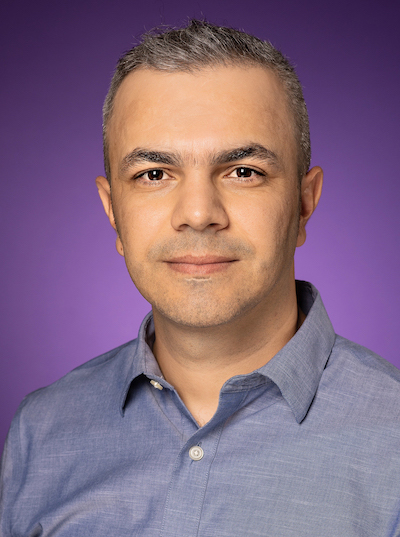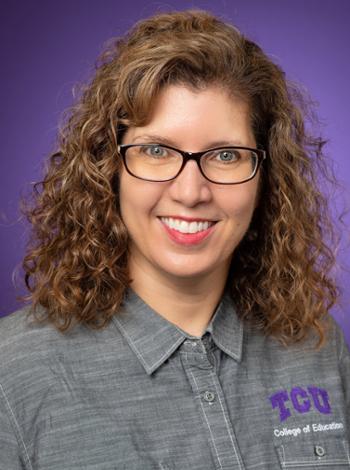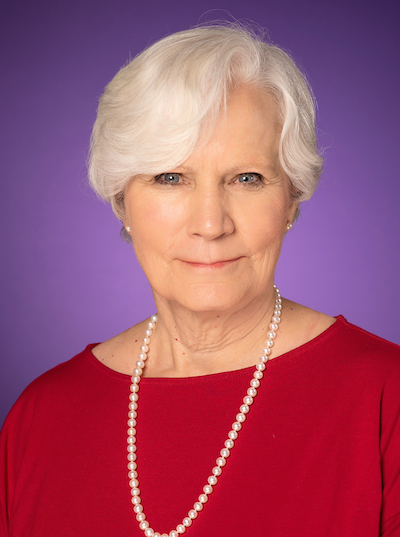Counseling
Program Philosophy
Each degree prepares graduates to take leadership positions in counseling, planning, directing, implementing, and evaluating counseling programs in schools and communities. The program is grounded in solution-focused practice emphasizing strengths and resiliencies rather than exploring pathology. This approach reflects our belief in the resources clients bring to counseling, and that counseling is time-limited.
Students enter a program of learning that emphasizes forming collaborative and nurturing relationships with other students and faculty. These relationships remain energized when students leave TCU to work in schools and communities.
After graduation, new counselors continue to work closely with their professors, peers, and other professionals. Students graduate with a network of people, skills, and resources. One student stated that he was prepared “to not only find a job but to be qualified above and beyond in that position.”
For detailed program information, visit the TCU Online Catalog or view the Clinical Mental Health Counseling Program Handbook or School Counseling and Human Services Program Handbook.
Those seeking a master's degree have three distinct degree options designed to provide students with necessary skills and resources to provide counseling or social services. More details about each program are below. All three programs are currently offered in-person only. Prospective students can access syllabi by contacting the COE Graduate Program Coordinator, Lori Kimball at l.kimball@tcu.edu.
Clinical Mental Health Counseling M.Ed. (60 hours) The Master of Education in Clinical Mental Health Counseling focuses on providing
students with a 60-hour, rigorous and strength-based program to prepare students for
licensure in the State of Texas, in accordance with Council for Accreditation of Counseling
and Related-Educational Program (CACREP) requirements.*
The Master of Education in Clinical Mental Health Counseling focuses on providing
students with a 60-hour, rigorous and strength-based program to prepare students for
licensure in the State of Texas, in accordance with Council for Accreditation of Counseling
and Related-Educational Program (CACREP) requirements.*
2023-2024 Clinical Mental Health Program Annual Report
2022-2023 Clinical Mental Health Program Data
2021-2022 Clinical Mental Health Program Data
2020-2021 Clinical Mental Health Program Data
2019-2020 Clinical Mental Health Program Data
Listen to a Podcast Featuring TCU Counseling Faculty and Students
Program Objectives
1. Demonstrate clinical competence using an approach that emphasizes client strengths
and resiliencies
2. Demonstrate knowledge and adherence to professional ethics
3. Engage in personal and professional reflections to develop strategies for life-long
learning and improvement of counseling skills
4. Develop and maintain culturally-responsive counseling relationships through ongoing
contemplation of counselor awareness, knowledge, skills, and advocacy
5. Perform the assessment and intervention skills needed to work with individuals
in a variety of settings
6. Demonstrate mastery of necessary foundational knowledge to successfully pass licensing
exam required by the Texas State Board of Examiners of Professional Counselors
7. Demonstrate knowledge of systemic and environmental factors that affect human development,
functioning, and behavior
8. Practice approaches for assessing the conditions of the work environment on clients’
life experiences
9. Demonstrate counselor characteristics and behaviors that influence the counseling
process
10. Apply knowledge of types of groups and other considerations that affect conducting
groups in varied settings
11. Demonstrate knowledge of ethical and culturally relevant strategies for conducting,
interpreting, and reporting the results of research and/or program evaluation
12. Present client cases that include the following: intake interview, mental status
evaluation, biopsychosocial history, mental health history, and psychological assessment
for treatment planning and caseload management
The mission of the Clinical Mental Health Counseling Program is to prepare counselors to work in diverse settings and be reflective, ethical, and competent practitioners in their chosen work roles.
School Counseling M.Ed. (48 hours)
The M.Ed. in School Counseling focuses on providing students with a 48-hour rigorous
and strength-based program to pursue certification in school counseling. All counseling
classes may be applied to academic requirements for Texas professional licensure.
The M.Ed. in School Counseling meets the requirements of the State Board of Educator
Certification and follows the guidelines for certification in school counseling.*
The School Counseling M.Ed. program is accepting applications for the 2025 Summer semester.
*As of September 1, 2019, the Texas Education Agency requires school counselors to have a master’s degree in counseling that encompasses 48 hours of coursework. We no longer offer certification only.
Human Services M.Ed. (36 hours)
The M.Ed. in Human Services focuses on providing a 36-hour rigorous and strength-based
program designed for students who are interested in providing social services in settings
that do not require licensure or certification.
Click on the link below to sign up for an information session via zoom on January 8th:
https://calendar.tcu.edu/event/tcu-med-counseling-human-services-information-meeting-9582
- Complete the online application ($60 fee) (Select Clinical Mental Health Counseling, School Counseling, or Human Services)
- Demonstrate strong academic record
- Three letters of recommendation (at least two should be from individuals who can comment on the applicant's academic performance and/or potential to reach professional goals)
- Brief essay explaining your career goals and interest in the program
- Statement on Educational Practice (School Counseling applicants only)
- One official transcript from each college or university previously attended (e-transcripts may be sent to tcugradstudies@tcu.edu)
- Optional: Official GRE Scores
- Official TOEFL scores for non-native English speakers
- Online Criminal Background Check
- Professional interview
February 1 – summer/fall admission
November 1 - spring admission (only available for Human Services M.Ed.)
As of March 15, 2017, the Texas Education Agency Board requires the implementation of an Accountability System for Educator Preparation Programs (ASEP) technology fee, as required by 19 TAC 229.9(7). This fee is required for each candidate seeking certification; the candidate must pay a $35 fee when admitted to the program. The fee will appear on your TCU student account.
Regardless of licensure, all students are required to obtain liability insurance and complete a Practicum in counseling. The Texas Education Agency (TEA), the Texas Board of Examiners of Professional Counselors (aka the LPC Board), and many insurance companies require disclosure of any criminal offenses. If there is any question, students should obtain a criminal history evaluation.
Clinical mental health counseling students may obtain a criminal history evaluation letter following the procedure at: https://www.bhec.texas.gov/forms-and-publications/index.html .
The purpose of the criminal history evaluation is to establish procedures to evaluate, upon request, the criminal history of potential applicants to determine if they are ineligible to hold a license for health professions that include Licensed Chemical Dependency Counselors and Licensed Professional Counselors. These evaluations will occur before the potential applicants enter or complete a preparatory educational program or licensure examination leading to licensure, thereby allowing applicants to avoid unnecessary hardship or costs if their criminal history is a ground for license ineligibility.
School counseling students may find similar information at: https://tea.texas.gov/texas-educators/investigations/preliminary-criminal-history-evaluation-faqs.
For more information about applying to the M.Ed. in Clinical Mental Health Counseling, M.Ed. in School Counseling, or M.Ed. in Human Services programs, please visit the Graduate Admissions page or call 817-257-7661. For more information about financial assistance and scholarships, please visit the financial aid page.
Ph.D. in Counseling & Counselor Education
Counseling and Counselor Education is designed to prepare advanced professional practitioners in counseling, counselor education and systems intervention with particular emphasis on strength-based approaches to work with diverse populations and settings. Its purpose is to provide quality doctoral training for future educators, researchers and clinicians who wish to emphasize clinical applications that promote the health, quality of life and well-being of children, adolescents, young adults and their families.
The Counseling and Counselor Education Ph.D. Program provided me with a solid foundation to teach, counsel, and lead others successfully in a variety of different capacities and diverse settings.
Vanden Thong ’18
For a detailed description of the program of study, see the TCU Online Catalog or Ph.D. in Counseling & Counselor Education Student Handbook.
The Ph.D. in Counseling and Counselor Education requires a minimum of 60 credit hours post-matriculation.
Sequence of Experiences:
- Complete all content courses.
- Complete qualifying exams and begin internship.
- Complete portfolio and original research (culminating in successful defense of the resulting dissertation).
Each applicant must submit/complete:
- Official transcript(s) exhibiting a strong academic record and completion of CACREP entry-level requirements
- Current resume reflecting all clinical experience
- Copy of any relevant counseling license(s)/certification(s)
- Three letters of recommendation, at least two of which are from counseling faculty (from master's program) or clinical supervisors
- Personal Statement - In 500-750 words, explain why you wish to seek the doctorate. Explain how you see the degree as fitting with personal and professional goals, and what you view as your strengths and challenges as you embark on this new journey.
- Writing sample (15-20 pages, exclusive of notes and works cited) demonstrating appropriate academic writing skills needed for success in a graduate program
- GRE scores are OPTIONAL
- Professional interview
- Writing sample for a given prompt (case scenario)
For admission to the program, an applicant must meet CACREP entry-level foundational curricular standards, professional practice, and entry-level specialization requirements.
While a CACREP-accredited master's degree is highly preferred, applicants must be a graduate of a regionally accredited Counseling master's program in the U.S. or have proof of equivalent training in foreign institutions. Applicants who did not graduate from a CACREP-accredited master's program should submit detailed course descriptions (and syllabi if available) with transcript for review.
- Curricular standards include: (1) professional counseling orientation and ethical practice, (2) social and cultural diversity, (3) lifespan development, (4) career development, (5) counseling practice and relationships, (6) group counseling and group work, (7) assessment and diagnostic processes, and (8) research and program evaluation.
- Professional practice standards include: (1) supervised counseling practicum that totals a minimum of 100 hours (with at least 40 hours of direct counseling with actual clients) over a full academic term (8 weeks or more), and (2) supervised counseling internship in roles and settings with actual clients relevant to specialized practice area that totals a minimum of 600 hours (with at least 240 hours of direct service with actual clients). All practicum and internship experiences must adhere to CACREP rules for supervision.
- Demonstrated knowledge and skills necessary to address wide range of issues in a specialized practice area (i.e., addiction counseling; career counseling; clinical mental health counseling; clinical rehabilitation counseling; college counseling and student affairs; marriage, couple, and family counseling; rehabilitation counseling; or school counseling).
Applicants will be evaluated on the following:
- Academic aptitude for doctoral-level study
- Previous professional experience
- Disposition consistent with professional practice
- Oral and written communication skills
- Commitment to diversity, equity, inclusion, and social justice
- Potential for scholarship
- Potential for professional leadership and advocacy
February 1 - summer/fall admission
Program Advisors



817-257-6776
m.stark@tcu.edu
View Profile
